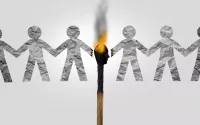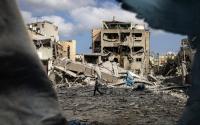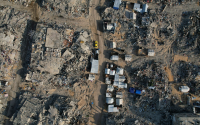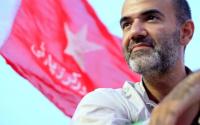5 April 2007Alertnet / CARE International - UK
Intergovernmental Panel on Climate Change (IPCC) reported to be released tomorrow must spur the international community into action, says CARE International UK.
CARE is calling on governments worldwide to invest in helping developing countries cope with the devastating changes in their environment brought about by climate change.
"Tomorrow's release of the Intergovernmental Panel on Climate Change (IPCC) Working Group 2 report is expected to confirm what CARE has witnessed in the poorest countries in the world," said Geoffrey Dennis, Chief Executive of CARE International UK.
"The impacts of climate change are already taking place, and it is the poor that are suffering," Dennis continues. "Now, the British government and international community must step up to its responsibility and help these communities to adapt to the changes and challenges they are facing."
Previous IPCC reports have made it clear that those who have contributed least to climate change are the ones who suffer most.
CARE is already helping communities in Bangladesh prepare for increasing flooding, salinity and other effects of climate change. As a result, more than 7,000 households in 16 different communities in rural Bangladesh have adapted their agricultural methods and developed new ways of earning money that make them more resilient to and less at risk from the effects of increased flooding.
Similar successes can be achieved elsewhere if the developed world allocates appropriate resources and sets targets under the UN Framework Convention on Climate Change to make this happen.
"All efforts to reduce the UK's contribution to climate change are admirable, but we urge the government to also focus on addressing what is already happening in developing countries," said Dennis. "This is not an either-or situation."
About CARE International:
CARE is one of the world's largest aid agencies, working in 70 countries to fight poverty and helping more than 48 million people every year. Our long-term programmes tackle the deep-seated causes of poverty and we are always among the first to respond when disaster strikes. We remain with communities to help them rebuild their lives long after the cameras have gone.






